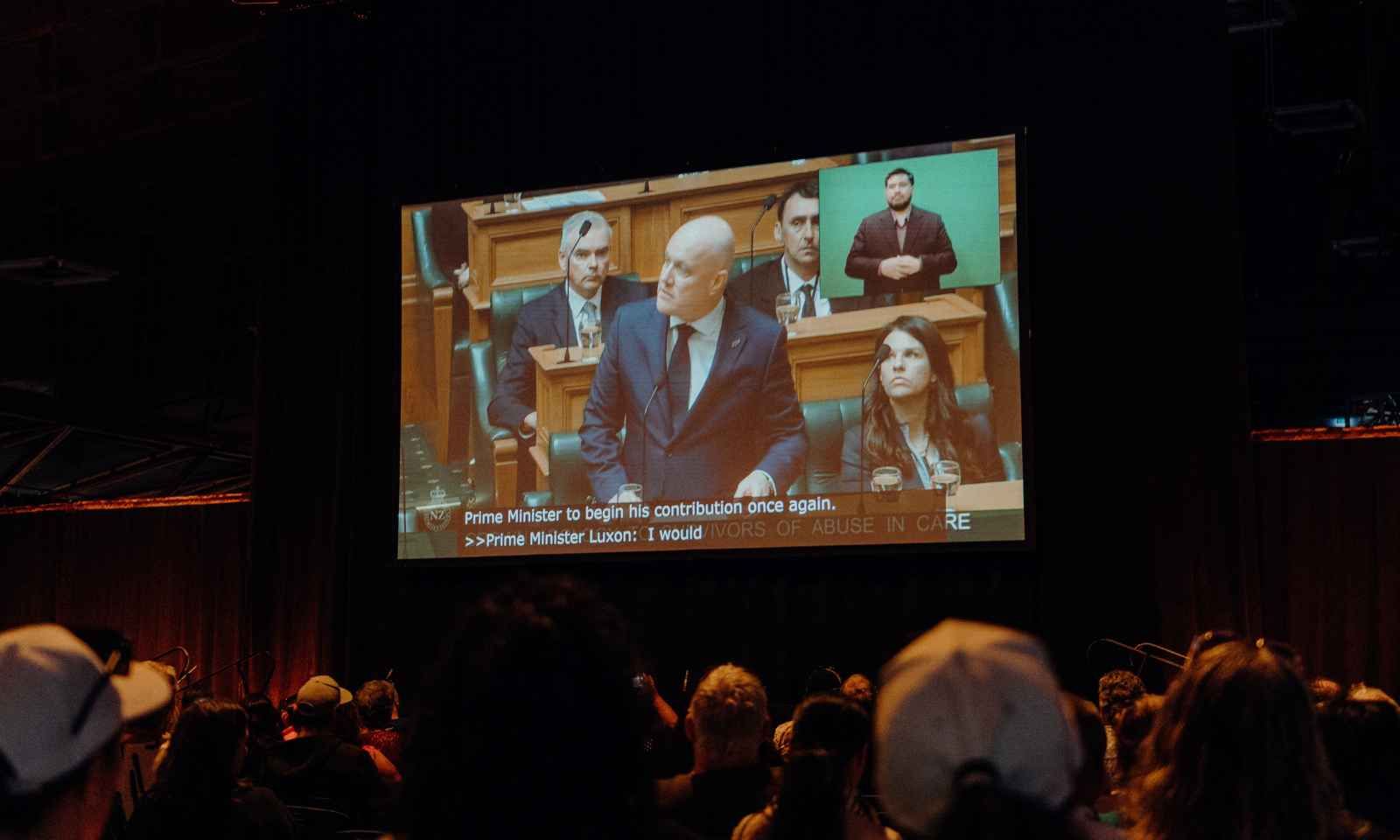

Revered Professor Dr Nāsili Vaka’uta calls for a culturally rooted faith, centred on love, for Pacific communities to base their doctrines on.
Photo/Unsplash
Reading your Bible: A new theology through the eyes of Pasifika
A reverend and professor argues for a decolonised church that listens to elders, honours diverse identities, and champions love over fear.



Christmas under the sun: How Pasifika are celebrating amid rising heat, extreme weather




Christmas under the sun: How Pasifika are celebrating amid rising heat, extreme weather

A Tongan Reverend says Pacific churches must nurture a faith rooted in “our story” rather than external doctrines.
Reverend Dr Nāsili Vaka'uta recently wrote about how Pacific faith turns harmful when colonial hierarchies, fear and “delusional” dogma replace love.
Citing Abuse‑in‑Care findings and anti‑LGBTQIA+ protests, he argues churches often shield reputations, silence survivors and weaponise scripture.
He urges a “re‑indigenised, decolonised” Christianity rooted in vā, service and talanoa centring survivors, embracing queer believers and enforcing trauma‑informed safeguards, something others agree with.
Speaking to PMN Senior Journalist Khalia Strong, Vaka'uta, a Trinity Theology College Ordained Methodist in principle, explains culturally rooted faith begins with Pacific and Māori thought, stories, languages and relationships.
“That means reading the Bible through our own eyes, through Māori and Pacific eyes,” Vaka’uta says.
“It means theology that listens to our elders, our land, our oceans, and to those on the margins.
“It looks like worship that includes our dances, our languages and also churches that welcome diverse groups of people.”
He says this includes “our queer and gender diverse siblings”, calls for a dignified welcome without shame, and more sermons about pressing matters such as climate change, domestic violence and mental health.

NZ Prime Minister Christopher Luxon’s apology to survivors of abuse-in-care last year. Photo/Joseph Safiti
“The things our people are actually going through - a faith that's not just about Sunday services, but about everyday transformation.”
Vaka'uta says the notion of not questioning things within Christian Pacific communities needs abandoning to prevent further death.
“Youth are seen as suicidal because they're told their sexuality is not accepted, they are sinful.
“It's about creating life-affirming communities for our whānau and mokopuna, and get the kind of Christianity we need: One that is whānau-shaped, justice-rooted, and radically loving.”

Rev Dr Nāsili Vaka’uta. Photo/YouTube/Siaosi Tuitupou
Religious delusion
Vaka’uta warns of “religious delusion”, which he describes as beliefs that disconnect from reality while excusing harm, such as churches rejecting science, framing vaccines as an attack or faith or shielding abuse while claiming divine authority.
“That's not spirituality, it's superstition in a runt and it becomes especially dangerous when religion props up harmful systems like patriarchy, homophobia, or racism, all in the name of God,” he says.
“That's not very liberating, it's the opposite of what the gospel is about.
“When real faith is grounded, it's humble, it seeks truth, and it always chooses love over fear.”
Listen to the full interview on Facebook
Healing and reflection through Easter weekend
With the Easter weekend public holidays underway during Holy Week, a sacred time for Christians, Vaka'uta says it is both a moment of celebration and “political refreshment”.
He explains it begins with remembering Jesus’ arrival in Jerusalem, where Palm Sunday just passed, moves to Maundy Thursday or Holy Thursday, and recounts when Jesus washed his disciples’ feet and shared the Last Supper.
Vaka’uta says Thursday is also a time to reflect on humility and unification, which then follows with Good Friday, a day for “facing the raw reality of suffering, in justice and state violence”.
“Holy Saturday, is a quiet, unfettered time, like many of our communities know, where grief and hope sit side by side. Then finally Easter Sunday bursts in with this decoration that life, love, and justice will always rise again.

The Nativity of Jesus. Photo/pray.com.au
“For Pacific people like us, with our histories of colonisation, land dispossession, and cultural survival, the Holy Week speaks directly to our experiences, and it reminds us that faith isn't about avoiding pain, but finding meaning, finding hope, and information through it.”
Vaka’uta adds Easter is more than its history, as it is an opportunity to turn to “what’s possible now”.
“It's about believing that after every Good Friday, every loss, betrayal, injustice, there's an Easter coming. If you have been hurt by religion, have felt excluded, I want you to know that the resurrection is for you too, all of us.
“For the Church, this is the moment we think what kind of body we want to be, one that protects power or the one that protects people.”